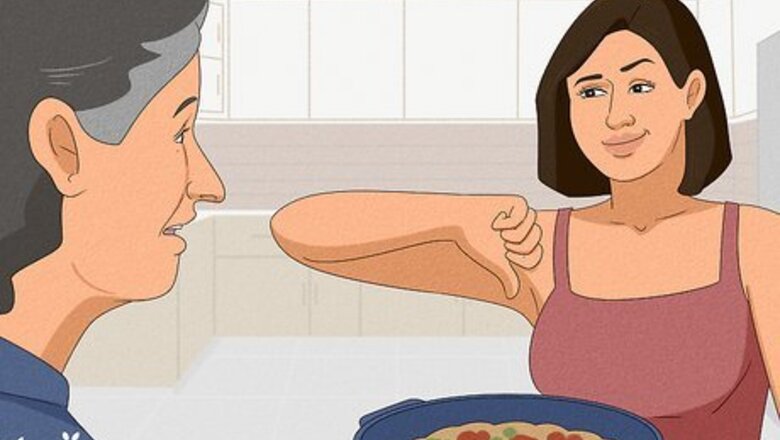
views
- A toxic daughter may blame you for her problems and refuse to take accountability for her actions. To get what she wants, she might make you feel guilty or invalidate your feelings.
- To deal with toxic behavior, clearly communicate your boundaries. For example, if your daughter yells at you, you can say, “If you raise your voice, I am going to leave the room.”
- If you feel guilty or upset around your daughter, you may have a toxic relationship. If your daughter continues to ignore your boundaries, you may decide to take a step back.
Toxic Daughter Traits
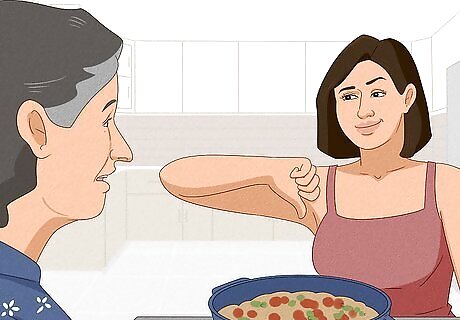
She always criticizes you. A toxic daughter may say mean things to her parents to make them feel ashamed or humiliated. If your daughter constantly makes unnecessary comments about your age, looks, cooking, behavior, or parenting style, it could be her way of intentionally hurting you.
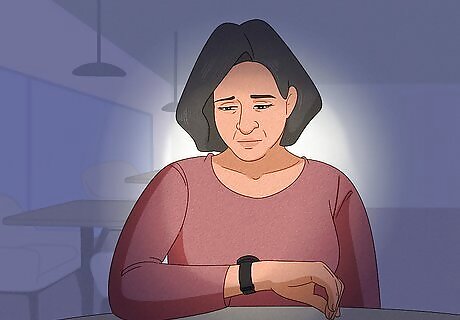
She doesn’t respect your boundaries. A toxic daughter may not believe in personal space or boundaries, fueling her toxic behavior. Whether she’s always late to meet you or calls you at any given hour (when you’ve asked her not to), this behavior isn’t acceptable for a grown adult—if she continues to act this way, it could harm her relationships with others because she doesn’t care about their time, space, or energy.
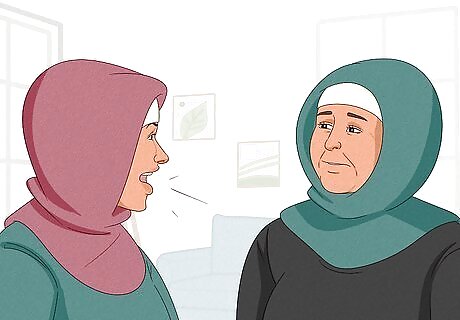
She yells at you. If your daughter raises her voice during an argument, it may be a sign that she’s not emotionally mature. Since she can’t express her emotions in a calm, rational way, the only way to get her point across is to lash out at you (and by overpowering your voice, you may not be able to get a single word in).

She plays the victim. If your daughter blames you for every problem in her life, she hasn’t learned how to take accountability for her actions. She might say things like, “It’s not my fault,” or “You’re the reason I turned out this way” (even when you don’t have influence over certain situations). By playing the blame game, she’s avoiding her responsibilities as an adult and hindering her personal growth.
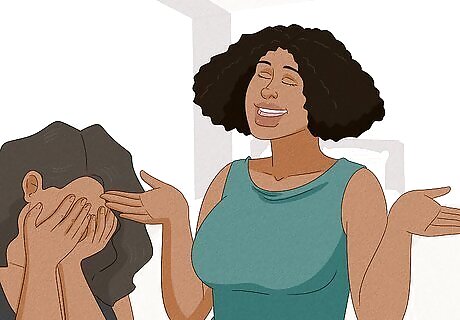
She lacks empathy. If your daughter was neglected or traumatized during childhood, she may be unable to feel or demonstrate empathy as an adult. While this doesn’t justify her behavior, it could explain why she makes insensitive or cruel comments. Since she can’t put herself in another person’s shoes, she doesn’t know how to work through conflict in a healthy manner (resulting in aggressive or toxic behavior).

She’s passive-aggressive. If your daughter gives you the silent treatment or shuts down conversations with a brisk “Whatever,” or “Fine,” she might have unresolved issues with you. Although this doesn’t give her the right to rudely dismiss you, this could be her way of masking her anger or resentment (and the moment you counter her behavior, she can use it to justify her passive-aggressive actions).

She’s manipulative. If your daughter doesn’t get what she wants through aggressive tactics, she may begin to act differently in order to take advantage of you. Whether she acts nicer to you than usual or flat-out ignores you, interpret this as a sign of toxic behavior—she’s playing up her emotions to get her way or convince you to do something for her.

She lies to get her way. If she can’t get what she wants through aggressive or manipulative tactics, a toxic daughter may resort to lying. No matter how big or small the lie, lying is extremely damaging behavior that breaks the foundation for a healthy relationship (and since it’s coming from your child, it feels like an even greater betrayal of trust).
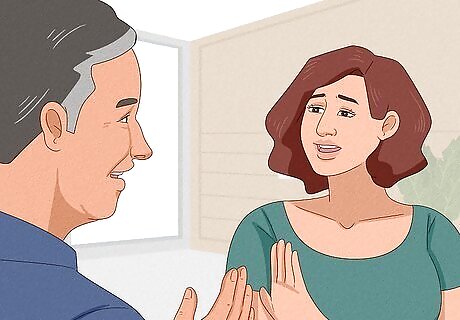
She gaslights you. A toxic daughter may invalidate her parents’ experiences to make herself feel better—but it’s definitely not okay. Since gaslighting isn’t as obvious as verbally attacking someone, it can be harder to identify, but if your daughter dismisses or minimizes your feelings (to make you feel like you’re always wrong), take it as a sign that you have an unhealthy relationship.

She doesn't apologize. A toxic daughter might believe she knows everything, which explains why she rarely or never apologizes. In her mind, she’s always right, and since she’s refusing to acknowledge anyone else’s opinion, it may feel like you’re talking to a brick wall most of the time.
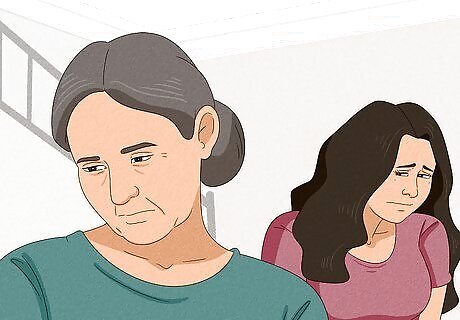
She makes you feel guilty. A toxic daughter may bring up her parents’ mistakes to justify her behavior. If your daughter constantly reminds you of a past slip-up, it usually means she’s not over the situation. Because there’s not a definitive way to prove your intentions were caring, she likely won’t forgive you until she addresses the pain and trauma within herself.
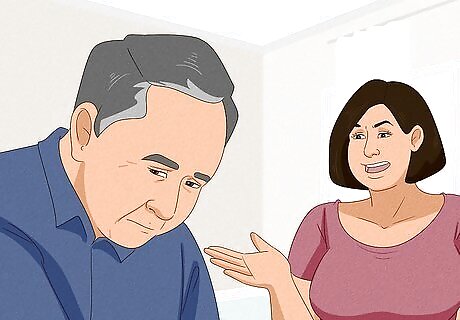
She verbally attacks you. Does your daughter frequently insult, criticize, or bully you? If so, it may be a sign that she has no emotional filter. A toxic daughter isn’t afraid to verbally attack her parents because she doesn’t know how to express her emotions properly (or she simply doesn’t care to). Since there’s only so much verbal abuse you can take, you may end up feeling bad about yourself when she’s not around.
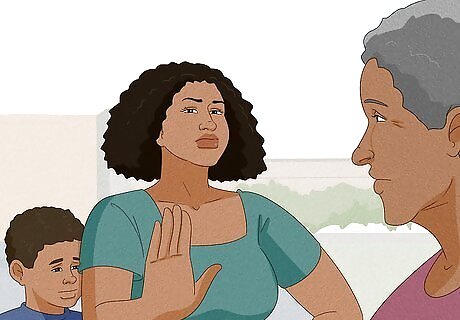
She uses others to get what she wants. If you have grandchildren, your toxic daughter may refuse to let you see them unless you give her what she wants. This is a clear sign of bullying (and bribery), and it can disrupt your entire family dynamic. By using her children as pawns, she’s playing a game to punish and hurt you.

She’s insulting. A toxic daughter may simply not care about her parents’ well-being. And if she doesn’t respect their opinions or boundaries, it means she’s not afraid to say things that come off as rude or offensive. If your daughter makes insulting comments about you or your partner, interpret it as a sign that you have an unhealthy relationship.

She’s entitled. Sometimes, a toxic daughter believes she “deserves” everything she desires (and uses this to justify her behavior). If your daughter praises herself when she does the bare minimum or thinks the world revolves around her, it might explain why she’s so hurtful to you—she doesn’t care about anything other than getting what she wants.
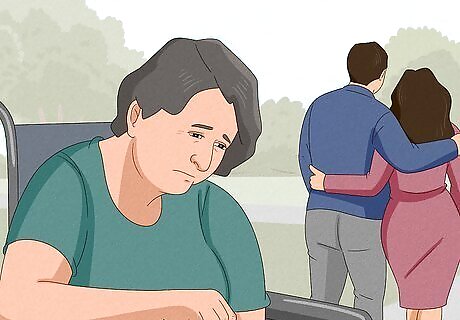
She abandons you after marriage. While it’s understandable for your daughter to prioritize her partner, it’s not normal to be cut off completely after marriage. If your daughter rarely reaches out unless she wants something, it’s definitely a sign that your relationship is toxic (and has become estranged).
Dealing with Toxic Behavior

Identify your daughter’s triggers or patterns. If you want to maintain a relationship with your adult daughter, figure out when she’s likely to have an outburst (so you can minimize the chances of one). For example, if she only yells at you in private, schedule all your dates with her in public settings. Or, if she gets extremely upset around your new partner, limit his contact with her to a virtual setting. Sometimes, your daughter’s toxic behavior may not directly concern you (and you could just be the person she’s venting her frustrations to). Once you recognize what makes your daughter tick, you may be able to develop a healthier relationship with her. However, it could take time, so be sure to practice self-care and work on yourself in the meantime.
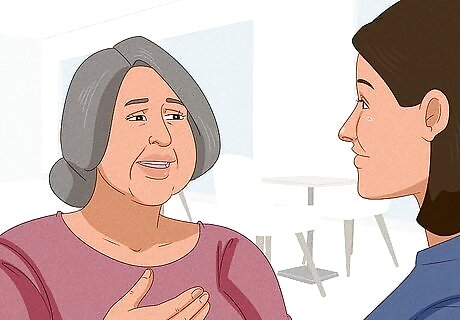
Set healthy boundaries. To protect your well-being, identify toxic behavior you will not accept and communicate your limits in a clear and direct manner. Try to be as concise and specific as possible so your boundary is easy to remember. For example, if your daughter constantly shouts at you, you could say, “I’m not going to listen to you if you don’t speak in a normal tone. If you raise your voice, I’m going to leave the room.” Although it can be hard to set healthy boundaries with your child, no one deserves to be disrespected or attacked. You don’t need a reason to be treated with respect, so be extra compassionate to yourself during this process. If you’re worried about confrontation, practice the scenario with a trusted friend so you can learn to stay calm in heated situations. If your daughter disregards your boundaries (and you don’t wish to speak to her in person), it’s perfectly okay to send her an email or text to restate them. You could say, “Since you don’t respect me and continue to insult me, I will no longer accept your calls.”

Try to turn an argument into a conversation. If your daughter is upset or angry, remain calm and try to talk things through. Sometimes, children resort to unhealthy coping mechanisms, like yelling or passive-aggressive behavior, because they can’t express their true emotions. To defuse a tense situation, you could say, “I think the situation is getting out of hand, so let’s take 10 minutes to regroup. I want to understand where you’re coming from.” If you’re dealing with passive-aggressive behavior, avoid mirroring your daughter’s behavior and figure out why she’s acting up. Instead of giving her the cold shoulder, you could say, “I may be wrong, but it seems like you’re upset. Do you want to talk about it?” or “If you're upset about something, it’s safe to talk to me.” If your daughter opens up to you, be sure to accept and validate her emotions, even if you don’t agree with her behavior or point of view.
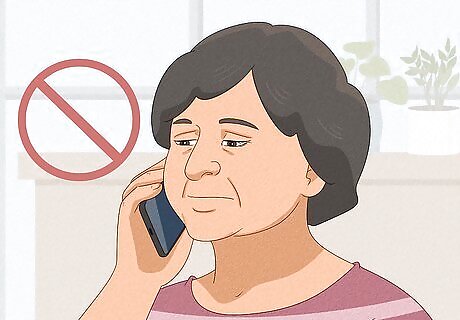
Limit your contact if things don't get better. Although you shouldn’t have to change your schedule to avoid your daughter, you might find it’s the most effective way to maintain a peaceful life. Regardless of your relationship, you don’t owe anyone your time and energy, so feel free to leave the room if you don’t want to be near your daughter. Or, give yourself a break and go no-contact for a few months until you’re in a better place. If you can’t limit physical contact with your daughter, try to limit the emotional energy you spend on her. To protect yourself from negative energy, make a conscious effort to focus on the positive aspects of your life and remind yourself that it’s not your responsibility to “fix” someone. While it can be hard to avoid your daughter at family gatherings, try to surround yourself with other people so there’s no opportunity for her to corner you. Avoid sharing the details of your relationship to family members you’re not close to—remember that any information can be used against you.
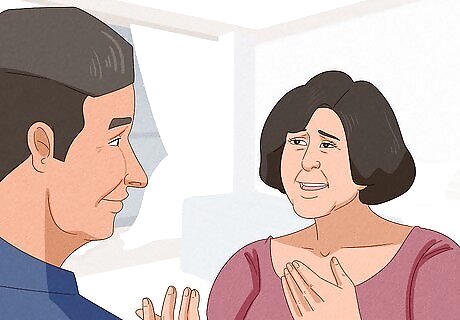
Get support from loved ones. If you’re struggling to deal with your daughter’s toxic behavior, talk to a trusted family member or friend to help you process your emotions. Remember that you don’t have to go through this experience alone—a loved one can help you navigate your relationship with your daughter and provide emotional support. If you don’t have a strong support network, seek professional help. A therapist is an unbiased third party who can help you figure out the next steps in the healing process. If your relationship is seriously affecting your mental health, contact the National Hotline for Domestic Abuse.
Should I walk away from a toxic child?

If your daughter ignores your boundaries, it may be time to walk away. At the end of the day, if your daughter continues to attack or belittle you (and you’ve clearly stated your boundaries), you might have to cut ties with her to minimize your pain and suffering. While you can’t control your daughter’s behavior, you can control if she has access to hurt you, and by distancing yourself, you can begin the road to healing. Every relationship is different, so there’s no specific timeline to leave a toxic situation. The decision to walk away is extremely brave and difficult, so reflect on how you feel around your daughter and ask yourself what’s holding you back. When leaving an emotionally abusive relationship, be sure to set up an exit strategy with your friends and family. Accept that you may feel guilty at first, but remain firm in your decision. Remember that cutting contact with your daughter doesn’t have to be forever. When she’s ready to address and change her behavior, she can reach out to you to repair your relationship.



















Comments
0 comment